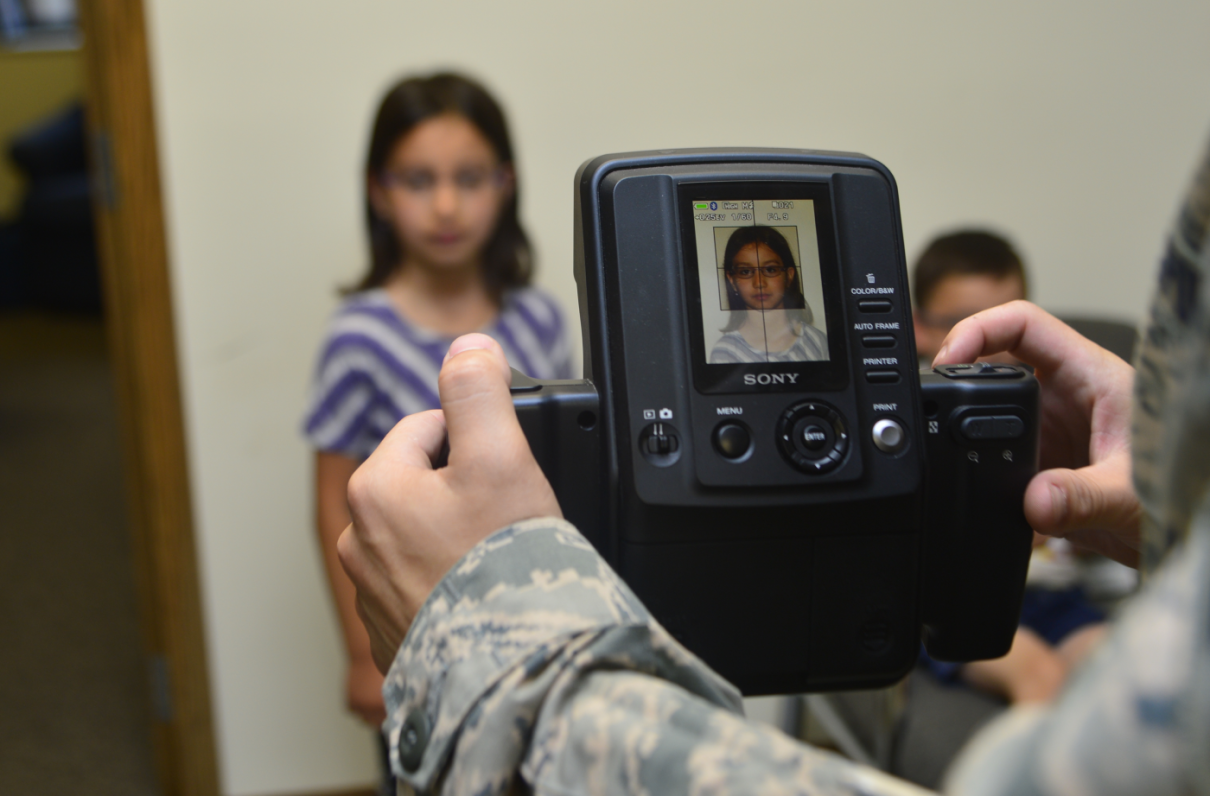This article by Patricia Kime originally appeared on Military.com, the premier resource for the military and veteran community.
A policy clarification from the U.S. Citizenship and Immigration Services published Aug. 28 does not revoke automatic citizenship for children of U.S. citizens born abroad, including troops and federal workers, Homeland Security Department officials said Wednesday.
But it will make adoptions and paperwork more complicated for some families of U.S. service members and as well as citizens who haven't been in the U.S. for a while.
USCIS issued a policy alert Aug. 28 that changes and spells out what it considers residency in provisions related to citizenship.
The policy states that "Effective October 29, 2019, children residing abroad with their U.S. citizen parents who are U.S. government employees or members of the U.S. armed forces stationed abroad are not considered to be residing in the United States for acquisition of citizenship. Similarly, leave taken in the United States while stationed abroad is not considered residing in the United States even if the person is staying in property he or she owns."
Military.com Related Content: Some Children of US Troops Born Overseas Will No Longer Get Automatic American Citizenship
The text of, and early reporting on, the new regulations ignited a ferocious backlash on the internet by those who interpreted them as a revocation of birthright citizenship for those born to U.S. government employee or troops serving abroad.
The policy goes on to say that "U.S. citizen parents who are residing outside the United States with children who are not [emphasis Military.com’s] U.S. citizens should apply for U.S. citizenship on behalf of their children under [policy] must complete the process before the child's 18th birthday."
Here’s who the policy affects:
- Children who live with their U.S. parents abroad but who did not acquire citizenship at birth, including infants and children adopted overseas.
- Children born of non-U.S. citizens who are adopted by U.S. citizens.
- Those whose parents became U.S. citizens after the child's birth.
- U.S. citizens who do not meet the residence or physical presence rules needed to transmit birthright citizenship, such as a person born overseas with birthright citizenship who never lived in the United States.
Children who did not acquire citizenship at birth are not considered to be residing in the U.S. just because their parents are citizens, the policy states. Under the new policy, these parents will have to apply for U.S. citizenship for their child.
According to the policy, a U.S. citizen born in the United States “generally meets the residence requirement as long as he or she can present evidence to demonstrate that his or her mother was not merely transiting through or visiting the United States at the time of his or her birth.”
By law, most babies born to U.S. citizens overseas become U.S. citizens at birth. The new policy "[does] not affect anyone who is born a U.S. citizen, period," USCIS Acting Director Ken Cuccinelli said in a statement to Military.com.
"This does not impact birthright citizenship. This policy update does not deny citizenship to the children of U.S. government employees or members of the military born abroad," Cuccinelli said.
The policy does not affect children born of two U.S. citizen parents who have maintained a residence in the U.S. before the child's birth, nor does it affect those who have received a Consular Report of Birth Abroad or Certificate of Citizenship acquired at birth; those born to a foreign national and a U.S. citizen parent who has physically been in the U.S. or one of its territorial possessions for at least five years; or unmarried parents if the U.S. citizen parent meets certain requirements.
USCIS did not provide any reasons for the policy update, other than to "define 'residence' as it relates to citizenship for children of certain U.S. government employees and members of the U.S. armed forces who are employed or stationed outside the United States, to conform with the definition of residence in the Immigration and Nationality Act."
"This policy aligns USCIS process with the Department of State's procedure, that's it," Cuccinelli said.
It remains unclear how many children will be affected by the new rules, which go into effect Oct. 29, but it will have an impact on the families of U.S. troops who are not U.S. citizens and are not married to a U.S. citizen, as well as any children adopted by service members stationed overseas.
From 1999 to 2010, roughly 80,000 non-citizens were members of the armed services. About 5,000 legal permanent residents join the armed services each year.
Other articles by Military.com:
Wilkie Promises No VA Budget Cuts in 2021 Request
National Guard to Offer Vet Center Help During Drill Weekends
Army Rolls Out New Reenlistment Bonus Worth Up to $81,000



